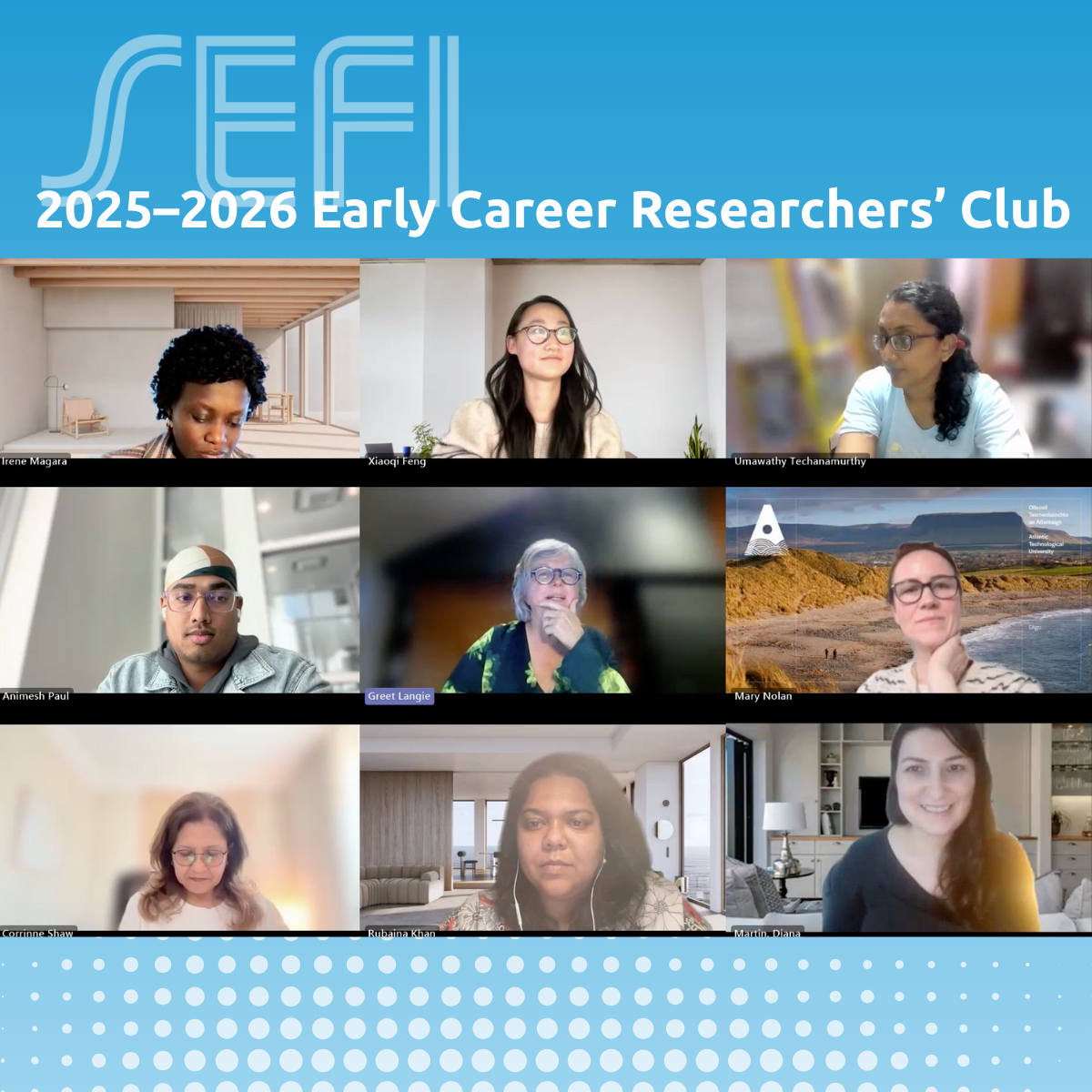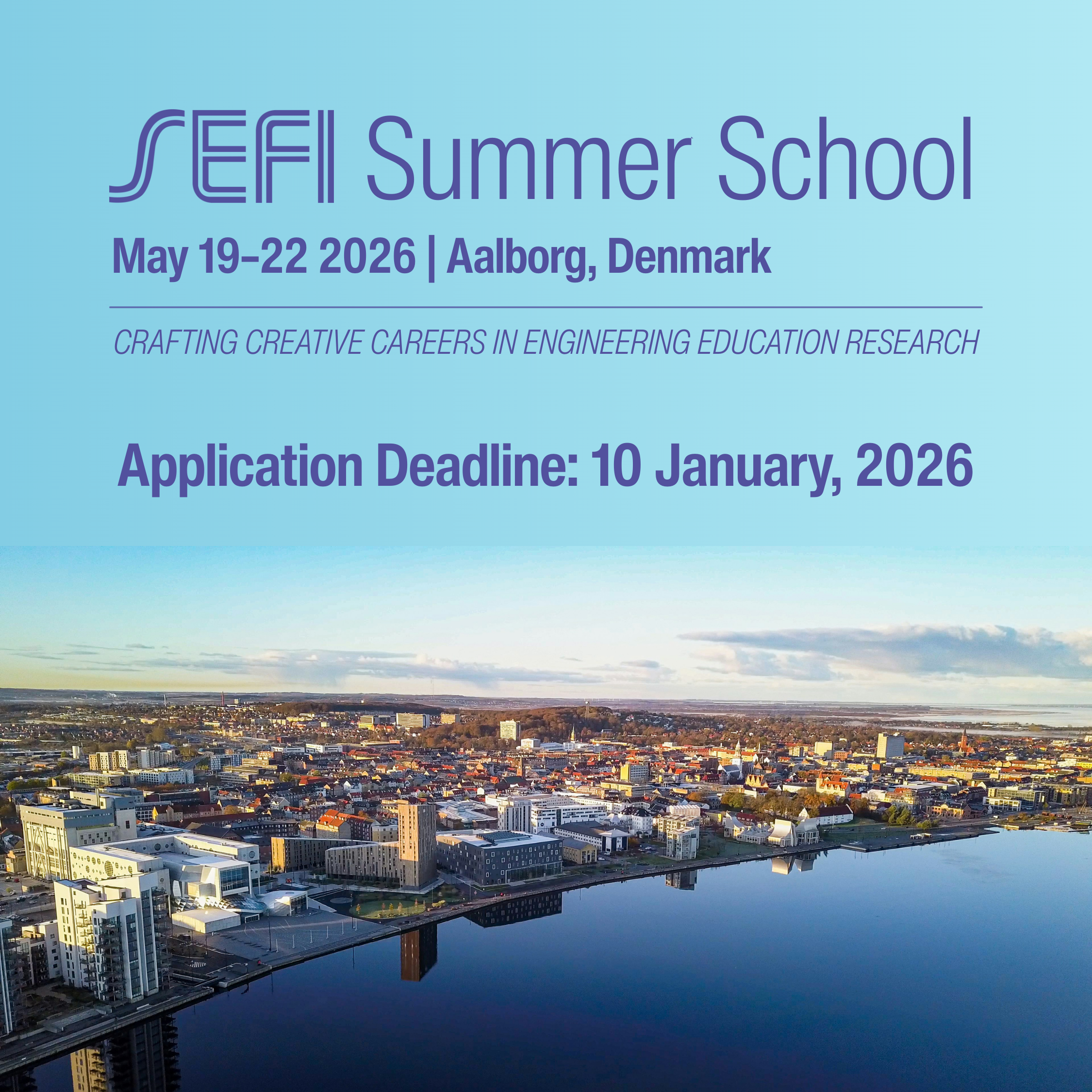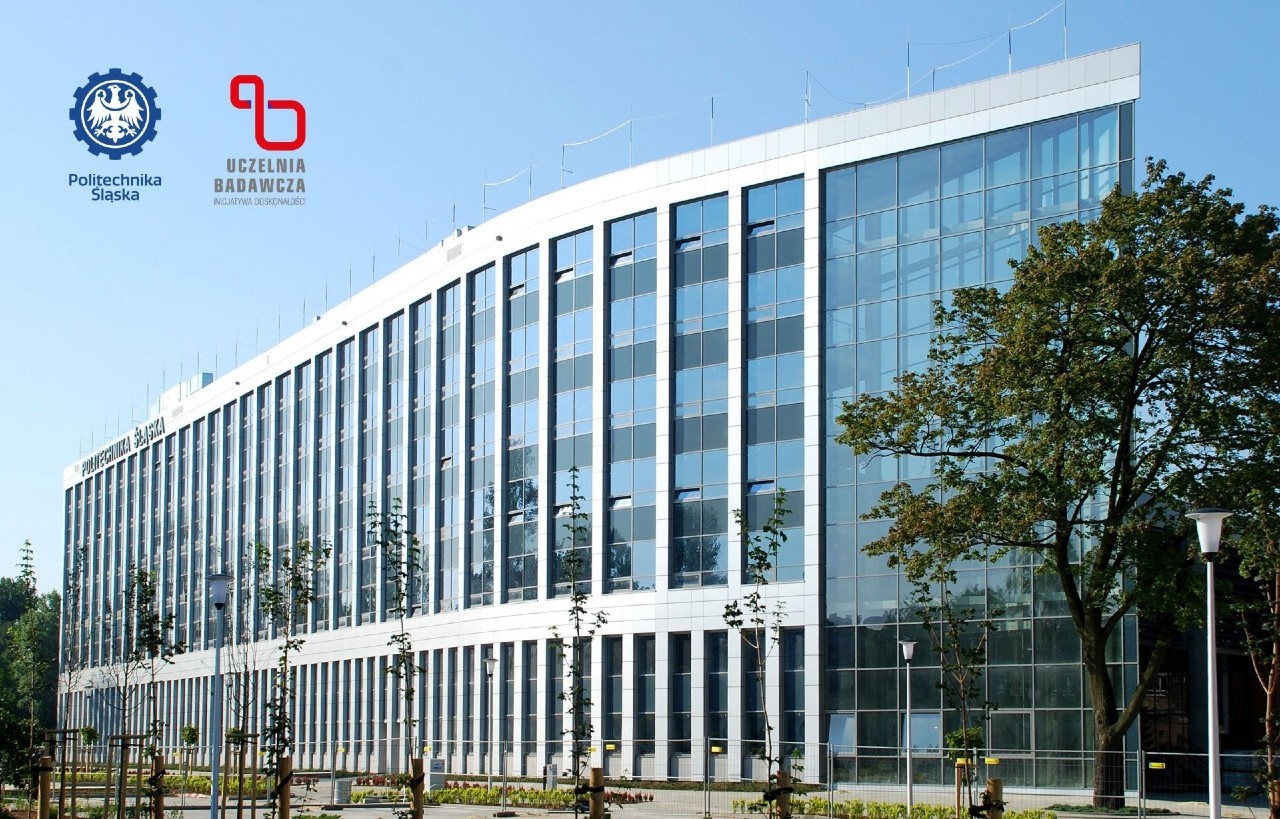The SEFI Early Career Researchers’ Club is a 9-month initiative designed to support and connect…
Wednesday, 10 November ’21 2:30pm – 4:30pm
Taking STS postures is about having fun and agency as teachers and students. How we hold ourselves and move about (literally our bodies) in relation to each other, STS, education, science and technology as key to having agency in the future of science and technology. The Science, Technology and Society (STS) program at the University of Maryland aims to help STEM students to challenge the status quo and show them they have agency to change it. In the classroom, we try to fight the impulse to see human agency as limited in a technologically dominated world. We challenge STEM students to see themselves as socially responsible change agents in that world. In essence, we like students to deeply consider how humans and technoscience need to get along. How do we do this? We emphasize a change in posture. Instead of sitting in seats in the classroom, we encourage them to move about. They learn data collection skills to visualize the world as socio-technical systems full of politics, culture, and social relationships. We offer a broad pallet of ethnographic data collection techniques that include document analysis, interviews, natural observation, participant observation, focus groups, visual image analysis, and metaphor analysis. These ethnographic skills help students embrace a systems thinking mindset that involves understanding how to:
1) listen contextually;
2) find ethics in artifacts;
3) make meaning;
4) seek stories about science and technology’s past, present, and future;
5) locate power in systems;
6) ask STS questions; and
7) host STS parties.
We reason that if students can take some of these data collection skills and mindsets into their STEM classrooms, internships, and careers, we will have given them life-long tools of interruption for responsibly interrogating their interactions with science and technology. During this seminar, we will ask for your participation in a couple of examples of how we encourage STS postures in our students.
Speakers:
Nicole Mogul and David Tomblin (Science, Technology and Society: University of Maryland College Park)


